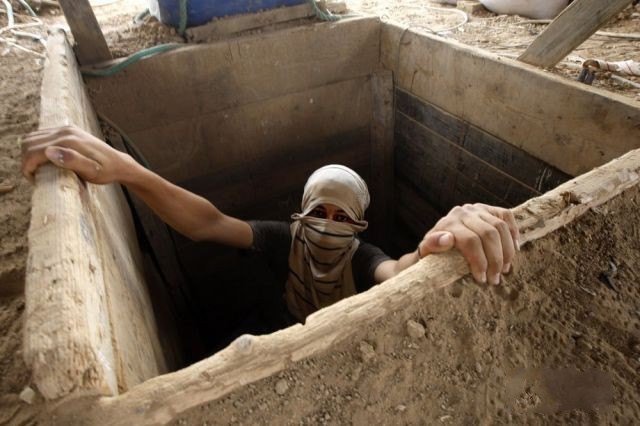CAIRO: In a bid to liberalize Egypt’s energy sector, Ministry of Petroleum announced this week it would sell oil and gas exploration and production rights in 12 areas around the country s southern cities.
On Tuesday, potential bidders began purchasing information about the blocks, which are located in the Red Sea, Gulf of Suez, and the country s eastern and western deserts. Deadline for submitting bids is in mid-July, the ministry said in a statement.
This is the country’s first attempt at auctioning off natural gas pipelines to local and international private firms.
Minister of Petroleum Sameh Fahmy told local press that this decision aims to increase Egypt’s oil output from a current 700,000 barrels per day to 800,000 barrels per day in 2008. He added that the country plans to extend natural gas to areas that are not currently connected to the gas grid and re-allocate the government’s capital expenditure.
“We have been promoting liberalization of the energy sector, as we consider this will allow the government to redirect some of its capital expenditure to spending on social items, like subsidies, on one hand, and to increase competition and reform in the energy sector, on the other, said regional investment bank Beltone Financial.
The Ministry of Finance announced last Sunday that the state budget for the forthcoming fiscal year 2008/09, starting this July, projected government expenditure at LE 312.6 billion, 28.1 percent higher than this year’s expected LE 244.1 billion.
The ministry has also put government revenues at LE 232.4 billion, 24.1 percent higher than that of the current year, primarily due to a 26 percent year-on-year growth in tax revenues that reached a whopping LE 121 billion. The budget included a GDP estimate of LE 998 billion for FY2008/09.
Expansion in government expenditure comes at a time of widespread strikes among various segments of the society including university professor, medical doctors and teachers, coupled with mounting violence over subsidized bread queues, which caused at least seven deaths last week.
Several Egyptians have recently taken to the streets protesting high inflation rates amid minor income levels.
Economists estimate that expansion in expenditure will mainly be directed towards: wages (LE13 billion), food subsidies (LE17 billion), water and low-income housing projects (LE2.5 billion), and agricultural subsidies (LE708 million).
While the new oil and gas tender will help the government re-allocate its expenditure, it will also allow more private players to invest in one of the country’s most promising sectors: natural gas.
Prior to revealing auction news, senior officials from Russia and Egypt discussed in mid-March the entry of Russian natural gas export monopoly Gazprom into energy projects in Egypt.
One of our important points is cooperation in energy, now oil and gas.
Novatek and LUKOIL are already working here. We were discussing how to have Gazprom start cooperation in Egypt also, Rachid Mohamed Rachid, minister of trade and industry, told Reuters.
Egypt enjoys tremendous proven reserves of natural gas that have allowed the country to become the sixth largest gas exporter in the world.
Recent figures show that Egypt produces close to 5.5 billion cubic feet (bcf) of natural gas per day, up from 3 bcf three years ago – a more than 80 percent increase in production. Exports constitute around 2.2 bcf – 44 percent of the nation’s current production – making Egypt a significant exporter of natural gas both by pipeline through Jordan and in liquefied form by ship.
“Liberalization in the gas sector will, later on, allow the private sector to supply natural gas from alternative sources, especially to industries which currently rely on the more expensive mazot (fuel oil) for its power generation, explained Beltone Financial.
The government announced in August a new industrial energy policy which will eliminate energy subsidies by 2009 for energy-intensive industries such as fertilizers, cement and steel. The most recent move under this policy was the increase in the prices of fuel oil by 100 percent to LE1000 per ton at the beginning of 2008. The higher price of fuel oil added to inflationary pressures in the construction sector, as the prices of bricks increased to LE 280 per thousand bricks in January from LE 180 in December.
It remains to be seen whether or not the new auction will result in hikes in prices of oil and gas in Egypt. According to Reuters, prices for any gas discovered would be based on market prices and on agreement between state-owned Ganoub El-Wadi Petroleum Company (Ganope) and the contractor after the discovery of the gas.
Our gas or oil prices are directly linked to the spot market price, Mohamed Ezat Sakr, Ganope s vice chairman for exploration and production, told the news agency.
Some news reports expect Egypt to sell further concessions in the north in two rounds this year.

